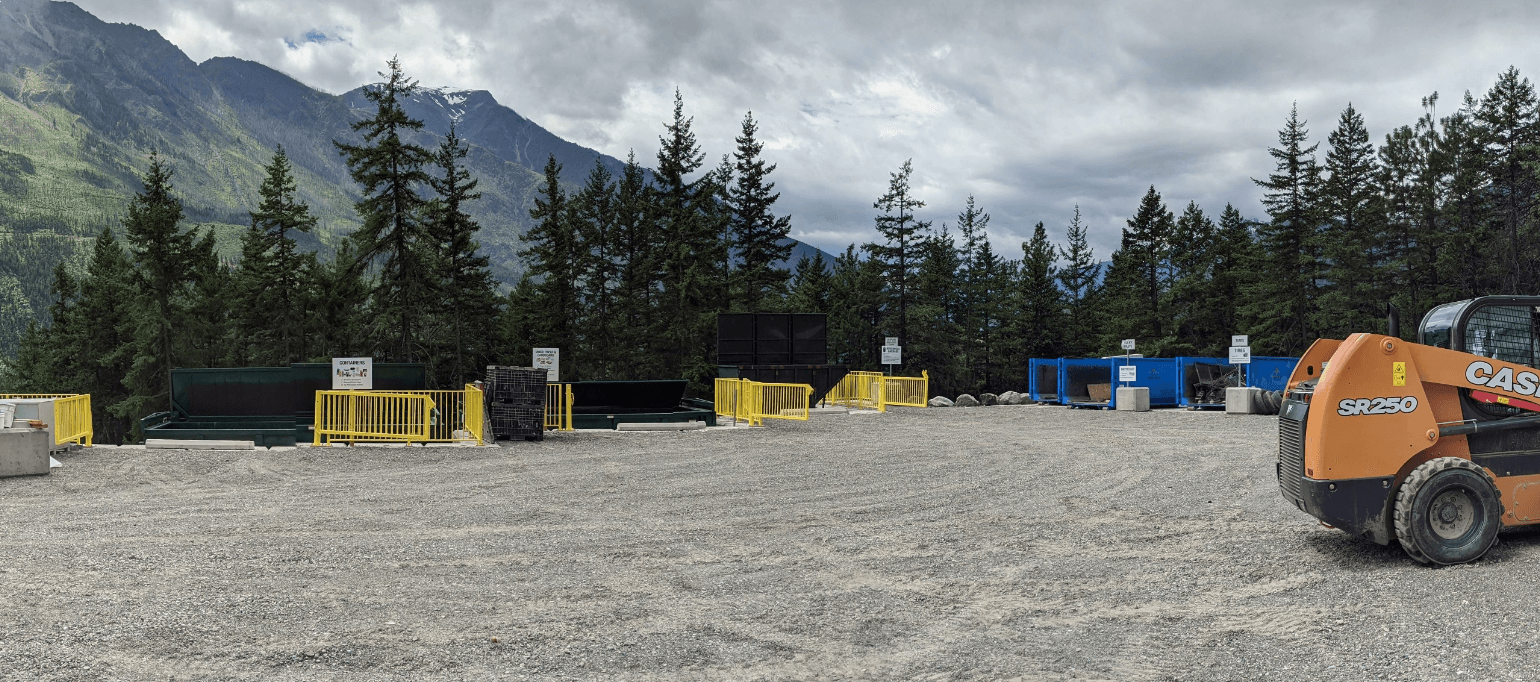
Supporting Indigenous voice and communities
With community at the heart of all we do, GHD is committed to partnering with our clients to achieve better outcomes that empower the voices of Indigenous peoples globally.
Throughout 2021-2022, we have continued to mobilise this commitment by prioritising community needs and cultural values to shape projects supporting communities across Australia and Canada, ensuring decisions are informed by Traditional Custodians and cultural advisors.
Tsal’alh First Nation Solid Waste Management System Upgrades
As part of the BC First Nations Zero Waste program, GHD worked with the Tsal’alh First Nation, a remote area at the most central/northern point of the St'át'imc Territory, in BC, Canada, to design and construct a new relocated solid waste management centre (SWMC). In conjunction with the construction of the new SWMC, the old SWMC was decommissioned and buried waste at another site in the community was excavated and properly disposed. GHD also assisted the community in developing a roadside collection system of garbage, recycling and organics in effort to reduce and divert waste from landfill, while creating local employment opportunities.
The new SWMC included infrastructure to collect materials such as household recycling, bulky waste, metals, tires, household hazardous waste, electronics, mattresses, white goods, as well as composters to process household organics.
In addition, GHD provided training to the site operators, site signage, and community education through workshops, development of household recycling and compost guides. GHD continues to assist Tsal’alh with ongoing transfer station support with maintenance and resource support.
Ngurra Cultural Precinct
GHD developed a compelling business case to secure funding for a national precinct that celebrates the richness and diversity of Aboriginal and Torres Strait Islander history and culture. To meet the Australian Institute of Aboriginal and Torres Strait Islander Studies’ (AIATSIS) vision, the precinct will include an education centre, exhibition and gallery space and, most importantly, a National Resting Place to house and care for repatriated ancestral remains on their journey back to Country. Extensive stakeholder engagement was a key component in the development of the business case which considered large-scale net zero emission pathway policies and future policy changes. All decisions were guided by AIATSIS’s vision to share the 65,000-year-old Aboriginal and Torres Strait Islander culture and work towards closing the gap.
This has greater significance in progressing the representation of Indigenous Australians in the national institutional landscape. We acknowledge the importance of the Ngurra Cultural Precinct to our continued journey of reconciliation, providing a new perspective of our shared history, one of truth-telling through learning and engagement.
Western Sydney Aerotropolis
Together with Zion Engagement and Planning and the NSW Department of Planning and Environment, GHD received the 2021 NSW Planning institute of Australia’s (PIA) President’s Award for Planning Excellence for the ‘Recognise Country’ Guidelines, which support Country-centred planning and design requirements for landowners, developers and authorities in the new Western Parkland City of Sydney’s growing Aerotropolis. The guidelines provide practical guidance for landowners, developers and consent authorities to deliver effective outcomes for the Aboriginal community and meet the new pioneering planning controls outlined in the Recognise Country section of the Western Sydney Aerotropolis Development Control Plan (DCP). The award recognised leading practice, leadership and overall excellence in planning disciplines across a range of sectors.
Communities and Social Performance - Rio Tinto
Our Impact Assessment and Natural Resource teams in Canada have provided communities and social performance (CSP) support services to Iron Ore Company of Canada (IOC) for its Québec/Labrador operations in Eastern Canada.
GHD updated the socio-economic knowledge base for two non-Indigenous communities and five Indigenous groups, conducted stakeholder/rightsholder interviews, assisted with planning cultural heritage co-management, conducted a study into child-care services and prepared a five-year CSP plan to meet Rio Tinto’s commitments to internationally recognised social sustainability standards. This work has allowed IOC to deepen its understanding of the Indigenous and non-Indigenous groups potentially affected by its operations. Since 2011, with our assistance, IOC has improved its performance in key areas such as diversity, cultural heritage management, and socioeconomic effects management of ongoing issues such as housing and childcare shortages.
